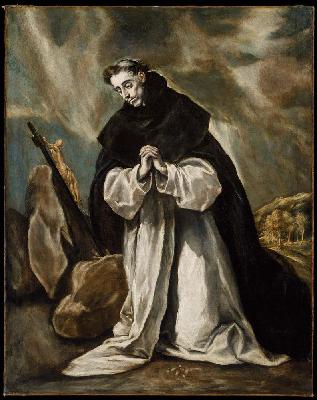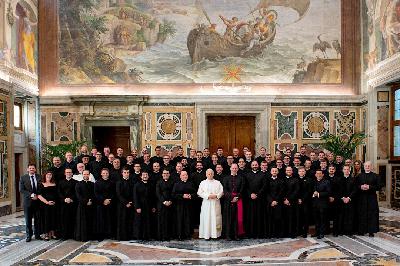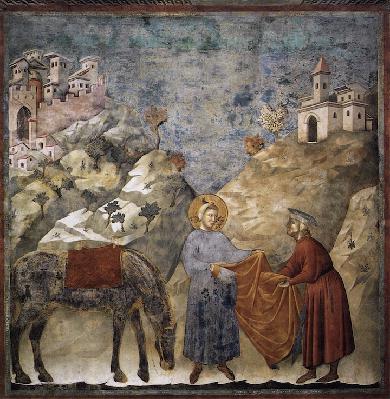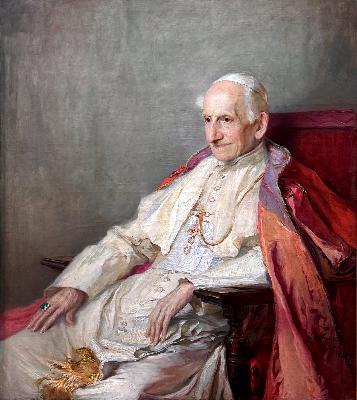Of Muslim Cowherds, Catholic Martyrs, and Institutional Decline
Update: 2025-10-27
Description
By Robert Royal.
It's common today to lament the widespread loss of faith in institutions: governments, schools, colleges and universities, courts, medical authorities, religions, and (not least) the Catholic Church. There are many reasons, good and bad, for this loss of faith. In most cases, it's simply the reaction to our institutions failing to do what they're meant to do. Sometimes there are such bizarre breakdowns that you're tempted to give up on such bodies yourself.
The Catholic Church lost a great deal of confidence, of course, over the sexual abuse crisis. However much the Church has been unfairly criticized when other institutions - like public schools - have comparable and even worse records, with little damage to their reputations, the humiliation was a wake-up call. Or would have been, if the whole Church had adopted effective remedies for this all-too-real problem. Yet inexplicably, we have celebrity priests like Marko Rupnik S.J. accused of staggering abuses and blasphemies, yet still active in ministry. As are others.
And on the less scandal-sheet level, consider the recent controversy over Cardinal Parolin's remarks about the persecution of Christians in Nigeria. A spokeswoman for Aid to the Church in Need, which issued a report last week on the persecution of Catholics around the world, defended the Cardinal's contention that Nigerian Catholics were often the victims of social - not religious - conflict. She characterized this as an off-the-cuff remark, just intended to acknowledge the complexity of the situation.
Perhaps so, but it's precisely what a person in a high position of responsibility - Parolin is the Vatican's Secretary of State - says almost randomly that's revealing. (A "Freudian slip" if you believe in such.) Part of what gives us confidence, or not, in a person's judgment is getting the proportions of things right in what are always complex situations.
Parolin was correct that there are other causes than religious antagonism for the killing of Christians in Nigeria. In particular, the competition for land between Muslim Fulani cow-herders and Christian farmers. But that's a small part of the problem. (The Vatican's occasional claim that "climate change" explains bad actors also falls into this category.) And it's true that even some "moderate" Muslims are attacked by radical Islamists in Nigeria.
But to draw attention to this side issue when something like 8,000 Christians have been killed, mostly by radical Islamists precisely for their faith, since the beginning of 2025 alone, suggests an almost willful desire not to state the real problem.
The persecution and martyrdom of Nigerian Christians is so bad that the decidedly secular - and woke - Washington Post invited me recently to write a guest opinion piece (here). Don't miss the comments if you need further proof of how many Americans have, of late, gone batsh*t crazy.
I myself wrote about the herdsman/farmer conflicts and the attacks on moderate Muslims in my book The Martyrs of the New Millennium, but more to the point:
According to Open Doors, 4,998 Christians perished in Nigeria in 2023; "there were more people that were killed because of their Christian faith than all other places in the globe combined.". . .from 2019 to 2023, 33,000 Christians of various denominations and several thousand moderate Muslims were killed by Islamic extremists belonging to Boko Haram, Fulani militants (formerly mostly Muslim "herdsmen" involved in land disputes with Christians), and the Islamic State West Africa Province (ISWP), among others. Over an even longer period (2009-2021), the International Society for Civil Liberties and the Rule of Law (Intersociety) - a Nigerian watchdog group - has documented 43,000 Christians killed, 18,500 Christians "disappeared," 17,500 churches attacked, 2,000 Christian elementary schools destroyed, and much else.
Those cow-herders do have some unusual ways of getting grazing land.
Aid to the Church in Need's 2025 rep...
It's common today to lament the widespread loss of faith in institutions: governments, schools, colleges and universities, courts, medical authorities, religions, and (not least) the Catholic Church. There are many reasons, good and bad, for this loss of faith. In most cases, it's simply the reaction to our institutions failing to do what they're meant to do. Sometimes there are such bizarre breakdowns that you're tempted to give up on such bodies yourself.
The Catholic Church lost a great deal of confidence, of course, over the sexual abuse crisis. However much the Church has been unfairly criticized when other institutions - like public schools - have comparable and even worse records, with little damage to their reputations, the humiliation was a wake-up call. Or would have been, if the whole Church had adopted effective remedies for this all-too-real problem. Yet inexplicably, we have celebrity priests like Marko Rupnik S.J. accused of staggering abuses and blasphemies, yet still active in ministry. As are others.
And on the less scandal-sheet level, consider the recent controversy over Cardinal Parolin's remarks about the persecution of Christians in Nigeria. A spokeswoman for Aid to the Church in Need, which issued a report last week on the persecution of Catholics around the world, defended the Cardinal's contention that Nigerian Catholics were often the victims of social - not religious - conflict. She characterized this as an off-the-cuff remark, just intended to acknowledge the complexity of the situation.
Perhaps so, but it's precisely what a person in a high position of responsibility - Parolin is the Vatican's Secretary of State - says almost randomly that's revealing. (A "Freudian slip" if you believe in such.) Part of what gives us confidence, or not, in a person's judgment is getting the proportions of things right in what are always complex situations.
Parolin was correct that there are other causes than religious antagonism for the killing of Christians in Nigeria. In particular, the competition for land between Muslim Fulani cow-herders and Christian farmers. But that's a small part of the problem. (The Vatican's occasional claim that "climate change" explains bad actors also falls into this category.) And it's true that even some "moderate" Muslims are attacked by radical Islamists in Nigeria.
But to draw attention to this side issue when something like 8,000 Christians have been killed, mostly by radical Islamists precisely for their faith, since the beginning of 2025 alone, suggests an almost willful desire not to state the real problem.
The persecution and martyrdom of Nigerian Christians is so bad that the decidedly secular - and woke - Washington Post invited me recently to write a guest opinion piece (here). Don't miss the comments if you need further proof of how many Americans have, of late, gone batsh*t crazy.
I myself wrote about the herdsman/farmer conflicts and the attacks on moderate Muslims in my book The Martyrs of the New Millennium, but more to the point:
According to Open Doors, 4,998 Christians perished in Nigeria in 2023; "there were more people that were killed because of their Christian faith than all other places in the globe combined.". . .from 2019 to 2023, 33,000 Christians of various denominations and several thousand moderate Muslims were killed by Islamic extremists belonging to Boko Haram, Fulani militants (formerly mostly Muslim "herdsmen" involved in land disputes with Christians), and the Islamic State West Africa Province (ISWP), among others. Over an even longer period (2009-2021), the International Society for Civil Liberties and the Rule of Law (Intersociety) - a Nigerian watchdog group - has documented 43,000 Christians killed, 18,500 Christians "disappeared," 17,500 churches attacked, 2,000 Christian elementary schools destroyed, and much else.
Those cow-herders do have some unusual ways of getting grazing land.
Aid to the Church in Need's 2025 rep...
Comments
In Channel
























